‘Delivery got complicated’: a logistic problem as explanation for deficit of medicines
Changeable shortage: antibiotics have appeared in Tatarstan but hormonal drugs and medicines for patients with cancers have disappeared
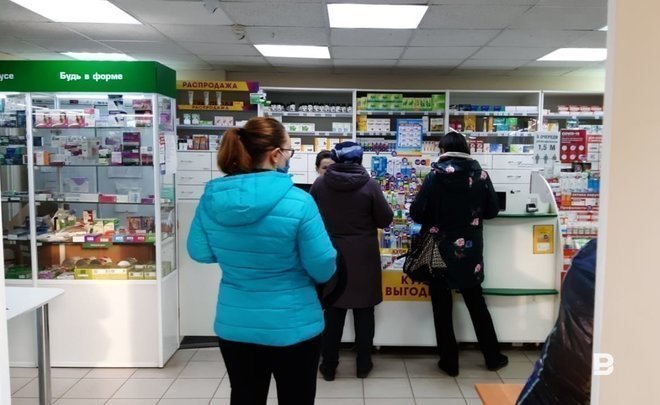
Tatarstan residents contacted Realnoe Vremya’s editorial complaining that despite assurances of the Russian Health Care Ministry about stable medicine supplies, necessary drugs have disappeared from pharmacies. Not only people entitled to subsidised medicines are having problems — it has become impossible to buy some medicines even for money. Since the ministry’s decree on delayed processing of discounted prescriptions that obliged pharmacies to register the fact of asking for a medicine and denying it because of its absence isn’t in force anymore, it means that now it will be hard to explain to patients entitled to free drugs that they are denied vital treatment. Read about disappeared antibiotics, painkillers, tranquilisers and hormones, the reasons for their deficit and ways of solving the problem in our report.
Where is everything gone to?
“I developed pustular tonsillitis a week ago,” said resident of Derbyshki settlement Valentina Pukhova. “A doctor prescribed me Amoxi-Clav pills. I have been in all pharmacies in our microdistrict — there is neither Amoxi-Clav nor its analogues. A pharmacy directory said that there are one or two packs in the other part of the city, but who will go there? I have high temperature, no energy to buck in public transport. My acquaintance rescued me — she had a part of the pack from the last year left.”
Another young woman complained about hormonal drugs:
“My husband and I are planning to do in vitro fertilisation, a doctor prescribed Oestrogel, while it is out of stock. My mum has another problem — she has been taking tibolone-based medicines to relieve post-menopausal symptoms for many years, they are not in stock either.”
Another resident of Kazan told us a sad story about his aged father suffering from Parkinson’s:
“Madopar and Stavelo have disappeared from pharmacies. We have bought an analogue of Madopar but it works worse for my father, I am saying this objectively because not my father but we, his family, is evaluating the results. While there is nothing to replace Stalevo. So what to do?”
Profetal that copes with side effects of chemo in patients with cancer isn’t on sale either. Prosidol — a strong painkiller that “works” when others do not — is out of stock too.
Prosidol — a strong painkiller that “works” when others do not — is out of stock too.
“I have managed to stock up on it as if I felt it”
“Finnish and German Tamoxifen (Editor’s note: a medicine to treat breast cancer) disappeared from pharmacies last year, the Russian one left, but it doesn’t seem to be effective to everybody, but it is gone too now!” Kazan citizen Lyudmila Vasilyeva (Editor’s note: not her real name) told Realnoe Vremya. “I am anyway lucky. When I was prescribed this medicine, I called pharmacies and managed to stock up on it for the whole treatment period. And now I meet people with the same disease at the polyclinic and they say they have no treatment. Casodex isn’t available in pharmacies either. Many drugs are out of stock. I meet my neighbours in the courtyard, patients at the polyclinic — we are all aged, have diseases. Now everybody’s main issue is to find the necessary medicines.”
Vasilyeva explained another problem, which is perhaps no less serious:
“Earlier, those entitled to free medicines were provided deficient drugs by giving them a call: we found out that a pharmacy finally received the medicine and called the polyclinic, one could come the next day and get the prescription at reception. Now this order was cancelled, and it is necessary to make an appointment with GP each time, while there are no appointments available all the time, and if they come about, it isn’t for today or tomorrow, it is in a week and even later. So it turns out to be a vicious circle — no medicine, no prescription, no appointment. And it is dangerous for patients with cancer to see a doctor only to get another prescription: the immune system is weakened after X-ray therapy, chemo, whereas the polyclinic is full of a crowd coughing with a runny nose — just bacteria and viruses around. Why should we be subjected to such a risk? To tick the box? To see a doctor to keep the order? The doctor doesn’t examine you in general, there is no time, he already knows everything.”
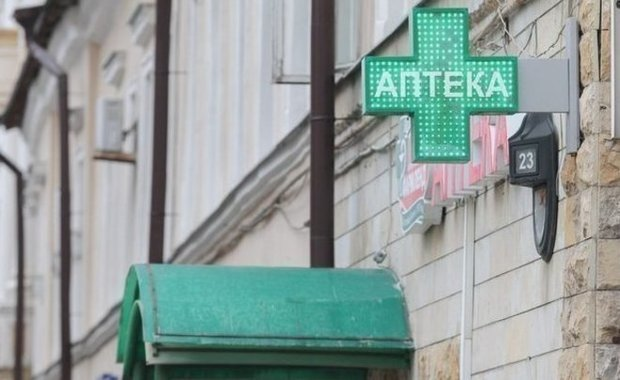
A hint of Russia’s health care watchdog
Russia’s health care watchdog recently reported on a deficit of medicines on its official website, however, in a disguised way — with a headline: “Russia’s health care watchdog warns: watch out, swindlers!” By warning citizens from buying the medicines that disappeared from pharmacies from resellers, the service meanwhile confirms the fact of the absence of drugs in pharmacies: “Nowadays there can be temporary delays in the delivery of the necessary amount of medicines to pharmacies due to suppliers and producers’ logistic issues.”
Pharmacists have repeatedly explained the disappearance of one of the most popular antibiotics, Amoxi-Clav (amoxicillin and clavulanic acid) as well as its analogues from pharmacies citing different reasons — from a higher demand because mobilised men were recommended taking it due to the special military operation to a deficit of clavulanic acid from the drug producer. Also, it was said that purchases and consequently sales of some medicines suddenly reduced as early as 2022, by 20-30%. For instance, Haloperidol.
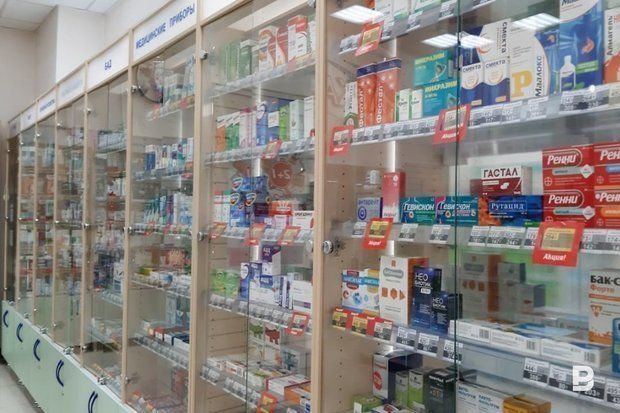
“Medicines for those entitled to free medicines are available”
“The Tatarstan Ministry of Health Care organises tenders to buy medicines for people entitled to free medicines in advance — 5-6 months before they are given to the citizens,” Realnoe Vremya was told in the Tatarstan Ministry of Health Care in answer to a question about the causes of the deficit of drugs. “All measures are being taken to provide patients with medicines on time. All tenders for the purchase of medicines and medical goods for these citizens for the first half 2023 were organised fully in accordance with requests of health care institutions.”
The Health Care Ministry explained that in case there appears information about a possible deficit, that’s to say, a threat of disappearance of some medicine, doctors change doses and replace other medicines in prescriptions and specified:
“There was a temporary shortage of a series of medicines: L-Thyroxin, levodopa and benserazide (Madopar), valproic acid (Editor’s note: used in treatment for epilepsy and psychoses), carbamazepine (Editor’s note: for epilepsy) due to panic buying in 2022.”
However, the ministry assured us that the necessary amount of these medicines was purchased for those entitled to free drugs.
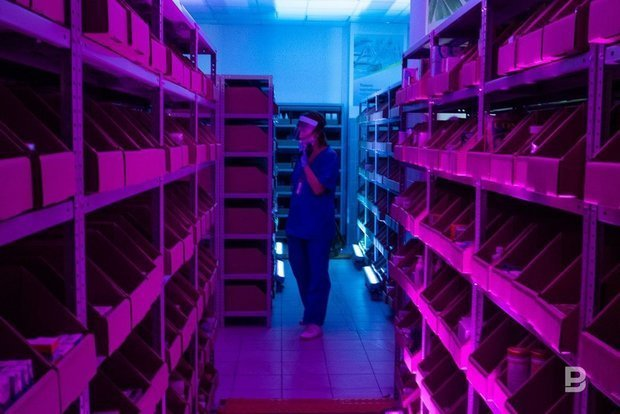
“Go to the website”
The Tatarstan Health Care Ministry informed Realnoe Vremya that updated information about the availability of medicines for the population was on the ministry’s website. Indeed, a dedicated section — Information for the Population, Information on Medicine Supply, Information on Availability of Medicines — with information as of 13 January 2022 reports on following problems.
The production of valproic acid (Izvarino Pharma) is suspended, valproic acid (R-pharm) isn’t produced anymore, Convulsofin-Retard (Teva) isn’t supplied to Russia, Convulex (Bausch Health) doesn’t have scheduled supplies to Russian in 2023 due to production restrictions. Other valproic acid-based antiepileptic drugs, according to the health ministry, are available in pharmacies, their temporary absence was related to a huge demand.
Carbamazepine, as the health ministry says, was fully purchased to provide those entitled to free medicines in 2023. At the same time, after considering applications receiving from three of its producers, there was made a decision to refix its highest possible price of the producer for medicines with the medical non-patented name Carbamazepine by Teva. The supply and use of Zeptol (Carbamazepine) stopped in Russia. Medicines made by other producers are available in pharmacies.
Anti-Parkinson’s drugs (Levodopa + Benserazide) were purchased in 2023 to provide federal and regional aided people. Three applications on refixing the price were received from Izvarino pharma Kanonfarma and Teva, they were sent to the Russian Federal Anti-Monopoly Service for an economic inspection.
The price for Levodopa + Benserazide was refixed, the medicine is expected to appear in the pharmaceutical market in the first quarter of 2023. The import of Madopar and Levodopa /Benserazide-Teva to Russia stopped. Tidomet forte (levodopa+[carbidopa]) is in stock, but since demand exceeds supply, the amount of imported drug isn’t enough. Sindopa and Carbidopa/Levodopa (levodopa+[carbidopa]) are out of stock in pharmacies, the expected import time to Russia is unknown. The medicine with the trademark Levodopa + Benserazide was purchased to provide federal benefit recipients in 2023.
According to Sandoz d.d., there was a deficit of Amoxi-Clav (amoxicillin+ [clavulanic acid]) in the pharmaceutical market because the amount of the imported medicine reduced (due to disrupted logistics) and demand exceeded supply. Now pharmacies of the republic have the drug in stock.
There is no information about other above-named medicines that are absent in Tatarstan pharmacies on the website of the health ministry.
“There are logistic problems”
“Nowadays only out of more than 200 foreign pharmaceutical companies has exited Russia, but it sold its business in advance, so it left in the country,” State Duma deputy from Tatarstan Ayrat Farrakhov reminded the audience when answering a question about the deficit of medicines. “Medical goods and medicines have never been on sanctions lists and I hope will never be on. So I think that the problem of the deficit of medicines exists either as a rumour or in some pharmacies a person goes to and they don’t have the drug he or she needs. And it is out of stock because there is a logistic problem: delivery got complicated. For instance, if earlier many imported medicines passed through Poland, the border with Belarus, today they make a roundabout. Effective supply management and making correct logistic decision are a solution to the problem.”
Farrakhov stressed that imported medicines accounted for just 30% of the market, while he linked a deficit of a number of not only foreign drugs but also those made in Russia with the high demand for them.

No need to stock up?
Realnoe Vremya’s expert assumes that the deficit of some medicines is related to the higher demand:
“After you write about an absence of some medicine, people will rush to stock up on it and the medicine will disappear. What should pharmaceutical companies and pharmacy chains do? To have a stock to regulate the market when there is a big demand.”
However, Ayrat Farrakhov didn’t recommend drug consumers to create big medicine reserves in home first-aid chests:
“Medicines have a limited shelf life, so then they will have to be thrown away. There is sense in having medicines in stock for 1,5-2 months only people with chronic diseases who constantly take some medicines.”
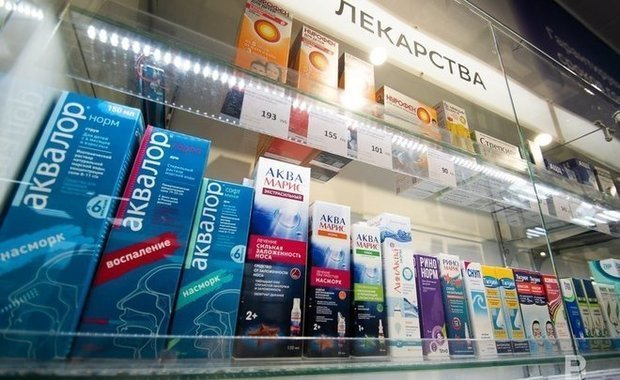
“Like in Europe”
Also, Ayrat Farrakhov noted that the problem of medicine supply was topical not only in Russia but also in Europe and America:
“The world is returning to the past after the era of globalisation — deglobalisation is starting. Europe is concerned about pharmaceutical independence. Much is done in Russia in this respect. If in the 90s we 90% depended on imports, now we do 30%.”
He reminded the audience that the ban on the production of medicines according to individual recipes in pharmacies introduced once to develop pharmaceutical enterprises was lifted in Russia thanks to efforts in Russia:
“We achieved the revival of production pharmacies and now developed a bill whose goal is to develop a system existing in Tatarstan where big enterprise Tatkhimfarmpreparaty is able to create reserves of medicines in case of a deficiency in Russia.”
As for the cancellation of a decree on delayed processing of free prescriptions, Realnoe Vremya’s interlocutor noted that “the patient must get the medicine” and “it is not logical to cancel such a decree when the logistics is changing” but hadn’t personally faced complaints about this problem.